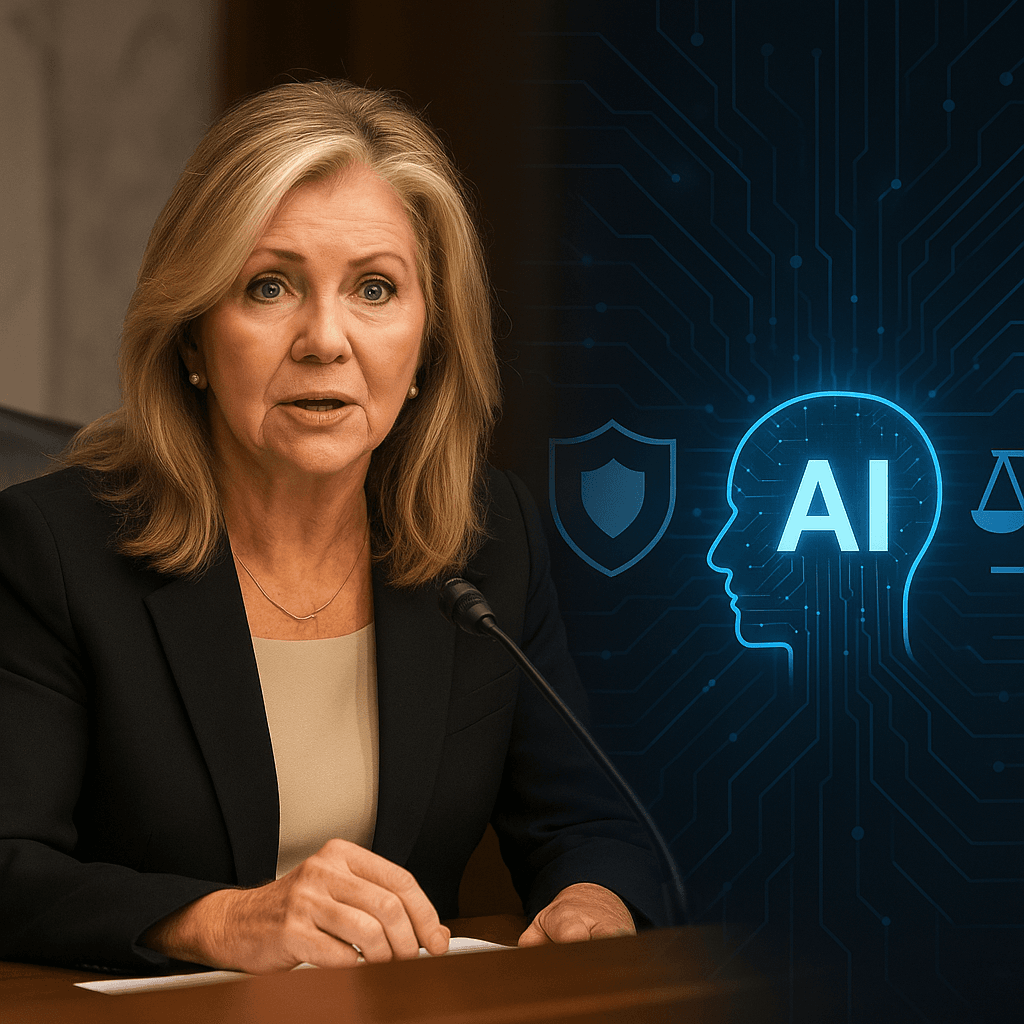Federal AI regulation is coming whether big tech likes it or not, Tennessee Senator Marsha Blackburn declared Wednesday at the CNBC AI Summit. With states like California, Utah, and Texas already implementing their own AI safeguards for minors, Blackburn says federal preemption has become 'imperative' to address growing privacy and safety concerns that Congress has so far failed to tackle.
The regulatory dam is about to break on artificial intelligence, and Sen. Marsha Blackburn isn't waiting for Silicon Valley's permission. Speaking at the CNBC AI Summit in Nashville Wednesday, the Tennessee Republican made it clear that federal AI oversight is coming - big tech resistance be damned.
"The reason the states have stepped in, whether it's to protect consumers or protect children, is because the federal government has, to date, not been able to pass any federal preemptive legislation," Blackburn told the summit. "We have to have the states standing in the gap until such time that Congress will say no to the big tech platforms."
The urgency is real. Just this week, California Governor Gavin Newsom signed a series of AI safety bills requiring chatbot safeguards and age verification tools, though he vetoed some of the stricter conditions legislators wanted. Utah and Texas have already implemented similar AI protections for minors, with more states signaling they're ready to follow suit.
Blackburn's been fighting this battle since 2022, when she introduced the Kids Online Safety Act to establish guidelines protecting minors from harmful online content. The bipartisan bill sailed through the Senate with overwhelming support, but it's been stuck in House limbo - a delay Blackburn squarely blames on big tech lobbying efforts.
"We are hopeful the House is going to take it up and pass it," she said, though her tone suggested patience is wearing thin.
What started as social media concerns has exploded into the AI era. "Once an LLM scoops [your data and information], then they are using that to train that model," Blackburn explained, coining the term "virtual you" to describe the digital footprint AI companies are harvesting without explicit consent.












